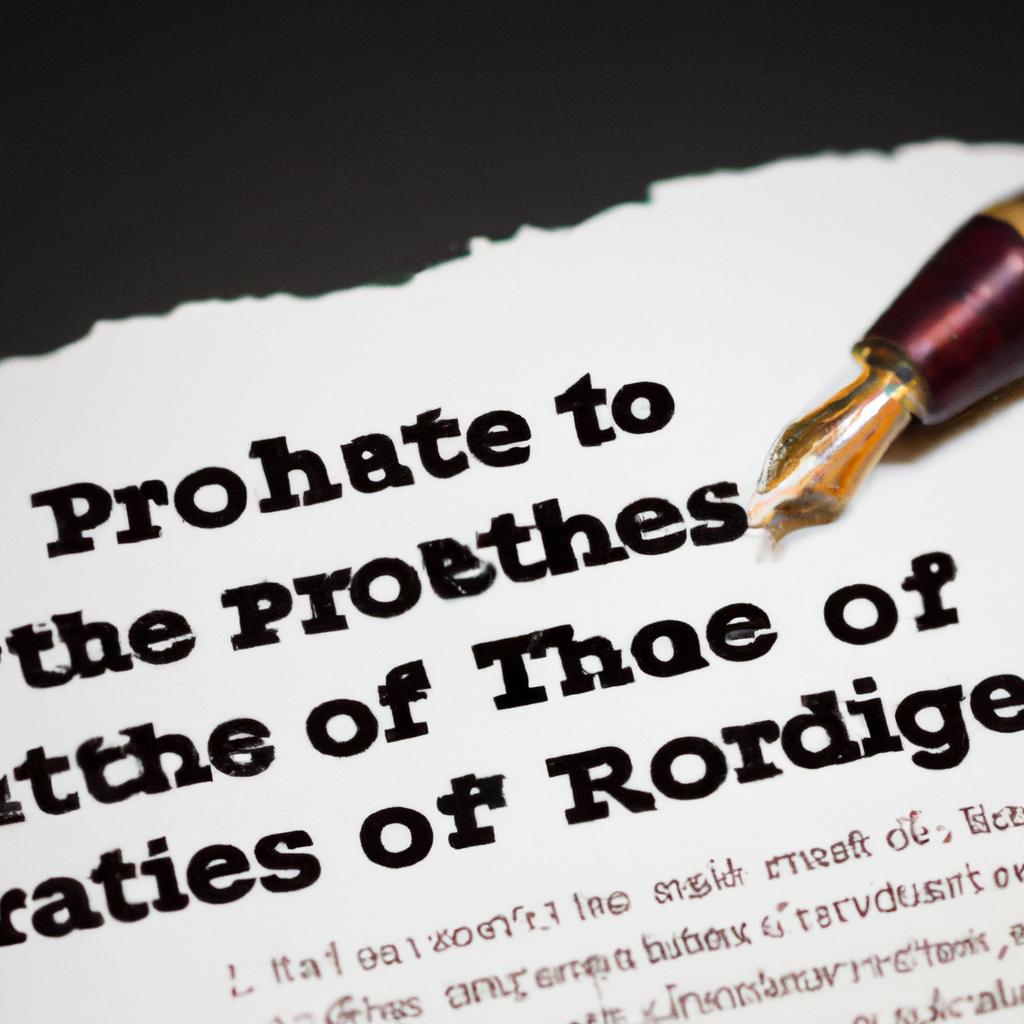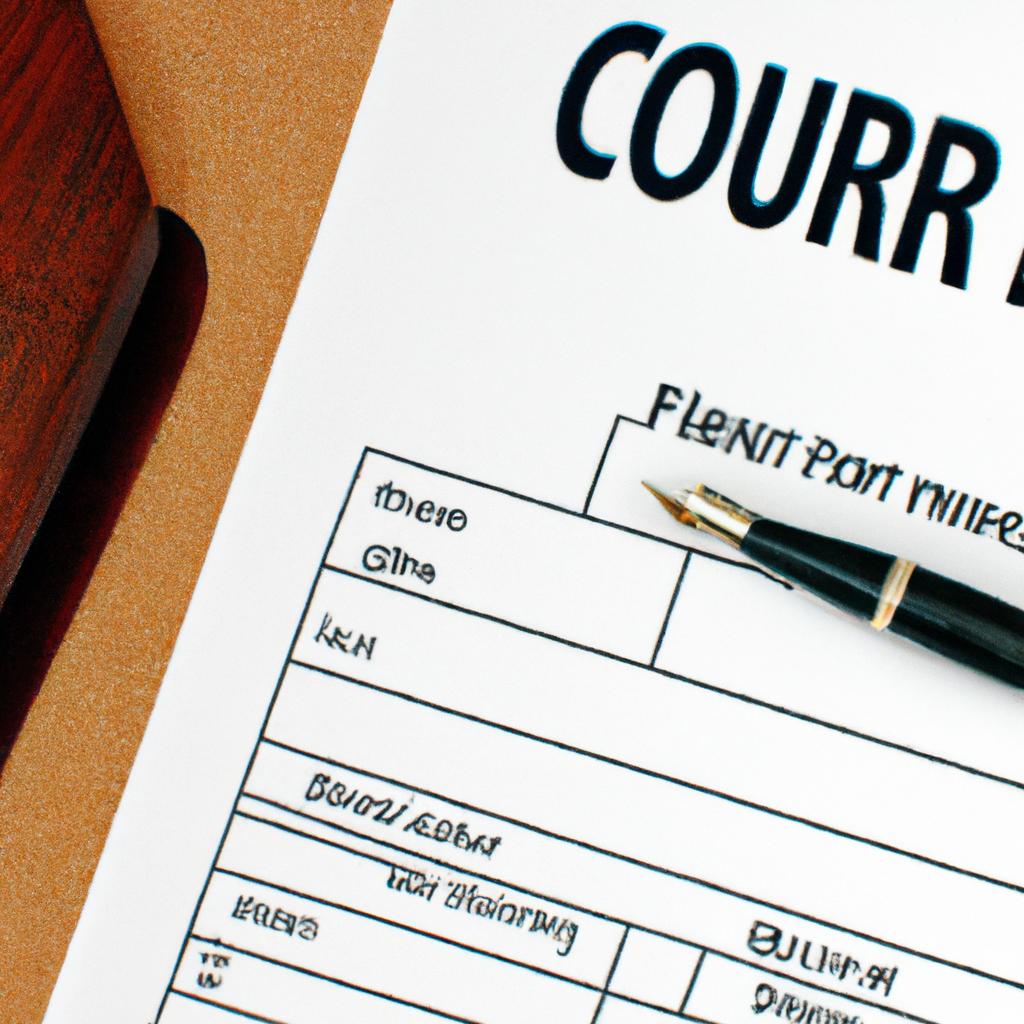Navigating the complex legal process of probate court can be daunting for many individuals, but with the right guidance and resources, it is possible to successfully navigate this stage without the need for a lawyer. In this article, we will explore the key steps and considerations involved in going to probate court without legal representation. As experienced professionals in estate planning, probate, elder law, Wills, and trusts at Morgan Legal Group in New York City, we provide valuable insights and tips to help you confidently navigate the probate process on your own.
Understanding the Probate Process and Your Rights
When it comes to navigating the probate process without a lawyer, it is essential to understand your rights and responsibilities. While having legal representation can provide invaluable guidance and support, there are instances where individuals may choose to handle their probate matters on their own. If you find yourself in this situation, there are several key steps you can take to prepare for probate court effectively.
First and foremost, it is crucial to familiarize yourself with the probate laws in your state to ensure you are complying with all legal requirements. Additionally, gathering all necessary documentation, such as the deceased’s will, financial statements, and other relevant paperwork, will be essential for presenting your case in probate court. Moreover, being organized and diligent in keeping track of deadlines and court filings will help you navigate the probate process smoothly. Remember, although going to probate court without a lawyer may seem daunting, with thorough preparation and understanding of your rights, you can effectively handle your probate matters.

Navigating Court Forms and Filing Procedures
In navigating probate court without a lawyer, it is essential to familiarize yourself with the necessary court forms and filing procedures. Understanding the paperwork involved in probate proceedings can help streamline the process and ensure that you meet all the necessary requirements. One crucial step is to obtain the correct forms for your specific case, such as the Petition for Probate and the Inventory and Appraisal form. These forms will vary depending on the size and complexity of the estate, so be sure to double-check that you have the correct documents before filing.
When filing paperwork with the probate court, it is important to follow all guidelines and procedures carefully to avoid delays or complications. Make sure to include all required information and supporting documents when submitting forms, as incomplete or inaccurate filings can lead to rejection by the court. Additionally, be aware of any deadlines for filing certain documents and keep track of important dates to ensure that you meet all necessary requirements in a timely manner. By being diligent and thorough in your filings, you can navigate the probate court process successfully even without the assistance of a lawyer.
Preparing Your Case and Presenting Evidence
When preparing to go to probate court without a lawyer, it is essential to gather all necessary documentation and evidence to support your case. This includes:
- Identifying the deceased individual: Provide the court with the name, date of birth, and date of death of the individual whose estate is being probated.
- Gathering important documents: Collect any relevant paperwork, such as the will, death certificate, and financial records.
- Creating an inventory of assets: List all assets of the deceased, including real estate, bank accounts, investments, and personal property.
When presenting evidence in probate court, it is crucial to be thorough and organized. Here are some tips to help you effectively present your case:
- Be prepared: Arrive at court early and have all documents and evidence neatly organized in a folder or binder.
- Present evidence clearly: When presenting your case, be concise and to the point. Use clear and easy-to-understand language.
- Follow court procedures: Familiarize yourself with the rules and procedures of probate court to ensure a smooth presentation of your evidence.

Utilizing Mediation and Alternative Dispute Resolution
In the complex world of probate court, navigating the legal process without a lawyer can be daunting. However, with the right strategies and knowledge, it is possible to represent yourself effectively. One way to streamline the probate process is by methods. These methods can help parties resolve conflicts and reach agreements outside of the traditional courtroom setting.
Here are some key tips for going to probate court without a lawyer:
- Research the probate process: Understanding the rules and procedures of probate court can help you navigate the process more effectively.
- Utilize mediation: Mediation can be a valuable tool for resolving disputes and reaching agreements with other parties involved in the probate process.
- Consider alternative dispute resolution: Alternative dispute resolution methods, such as arbitration or negotiation, can help parties settle their differences without the need for costly and time-consuming litigation.
- Prepare your case thoroughly: Make sure to gather all relevant documents and evidence to support your case in probate court.
- Seek legal advice: While you may be representing yourself in probate court, it is always advisable to seek legal advice to ensure you are following the correct procedures and protecting your interests.
Q&A
Q: What is probate court?
A: Probate court is a legal process where a deceased person’s assets are distributed and their debts are addressed.
Q: Why would someone want to go to probate court without a lawyer?
A: Some individuals may choose to represent themselves in probate court to save money on legal fees or because they feel comfortable navigating the process on their own.
Q: What are some tips for navigating probate court without a lawyer?
A: Some helpful tips include obtaining the necessary forms and documents, familiarizing yourself with the probate laws in your jurisdiction, and staying organized throughout the process.
Q: What are some common challenges individuals may face when going to probate court without a lawyer?
A: Some challenges may include understanding complex legal terminology, dealing with opposing parties or creditors, and ensuring that all necessary steps are completed accurately and in a timely manner.
Q: Are there any resources available to help individuals representing themselves in probate court?
A: Yes, there are resources such as online guides, self-help clinics, and court-sponsored workshops that can provide information and guidance to individuals navigating probate court without a lawyer.
To Conclude
Navigating the ins and outs of probate court without a lawyer may seem daunting, but with the right tools and preparation, it is possible to successfully handle the process on your own. By following the steps outlined in this article and being diligent in your research and organization, you can confidently navigate the legal system and ensure that your loved one’s estate is handled with care. Remember, while seeking legal representation can provide valuable support and expertise, going it alone is a feasible option for many. Good luck on your journey through the probate court system!
 Title: How to Navigate Probate Court Without a Lawyer: A Comprehensive Guide
Title: How to Navigate Probate Court Without a Lawyer: A Comprehensive Guide
Meta Title: Guide to Going to Probate Court Without a Lawyer
Meta Description: Handling matters in probate court may seem daunting without the help of a lawyer, but it is possible to do so successfully. Read on to learn important tips and steps to take when navigating probate court without a lawyer.
Probate court is a legal process in which the assets and debts of a deceased individual are distributed to their heirs and beneficiaries. This process ensures that the deceased’s wishes are carried out and their estate is properly settled.
However, the idea of going to probate court without a lawyer can be intimidating. Many people are not familiar with legal jargon and may not know where to begin. Fortunately, with some knowledge and preparation, it is possible to successfully navigate probate court without a lawyer. In this article, we will provide you with a comprehensive guide to going to probate court without a lawyer.
Step 1: Understand the Basics of Probate Court
Before diving into the process, it is essential to have a basic understanding of probate court. Probate court is where the assets and debts of a deceased person’s estate are handled. The court will appoint an executor or personal representative to manage the estate’s affairs. This person will ensure that the deceased’s debts are paid and that the remaining assets are distributed to the beneficiaries according to the will or state law.
Step 2: Determine If Probate is Necessary
Not all estates are required to go through the probate process. Some assets, such as joint bank accounts or assets held in a trust, do not need to go through probate. The best way to determine if probate is necessary is to consult with the probate court or an attorney.
Step 3: Gather Important Documents
To start the probate process, you will need to gather all the necessary documents, including the deceased’s will, death certificate, and any supporting documents related to their assets and debts. These documents will be crucial in determining the assets and liabilities of the estate.
Step 4: File for Probate
The next step is to file for probate with the court. You will need to submit the required documents, pay a filing fee, and provide proof of the deceased’s death. The court will then appoint an executor or personal representative if one was not named in the will.
Step 5: Notify Creditors and Beneficiaries
After filing for probate, it is essential to notify all creditors and beneficiaries of the deceased’s death. This includes sending a copy of the death certificate and the probate petition to creditors. Creditors will then have a limited time to make a claim against the estate for any debts owed.
Step 6: Inventory Assets and Pay Debts
Once the personal representative or executor is appointed, they will be responsible for gathering and inventorying all of the deceased’s assets. They will also be responsible for paying any outstanding debts and taxes owed by the estate. This process can be time-consuming, so it is important to be patient and thorough.
Step 7: Prepare for Court Hearings
There may be one or more court hearings during the probate process. The personal representative or executor may be required to attend these hearings to provide updates on the progress of the estate, answer any questions from the court, and obtain approval for their actions. It is crucial to be well-prepared for these hearings and to have all relevant documents on hand.
Step 8: Distribute Assets to Beneficiaries
After all debts and taxes have been paid, the remaining assets can be distributed to the beneficiaries of the estate. This is usually done according to the deceased’s will or state law if no will was left. The personal representative or executor will be responsible for ensuring that all assets are distributed fairly and in a timely manner.
Benefits and Practical Tips for Going to Probate Court Without a Lawyer:
– Saving on legal fees: By going to probate court without a lawyer, you can save a significant amount of money on legal fees.
– Familiarity with the deceased’s wishes: Handling probate on your own allows you to have a better understanding of the deceased’s final wishes and ensure that they are carried out accordingly.
– Seeking help when needed: It is important to remember that you do not have to handle every step of the probate process alone. You can seek assistance from the court or consult with an attorney whenever necessary.
Case Study:
John’s mother passed away, and he was left to handle her estate through probate court. Initially, John was unsure of how to navigate the probate process without a lawyer. However, with some research and consultations with the probate court, he was able to handle the process successfully on his own. By going to probate court without a lawyer, John was able to save thousands of dollars in legal fees.
First-Hand Experience:
“I was initially overwhelmed and intimidated at the thought of handling probate court without a lawyer, but with the help of online resources and consultations with the court, I was able to do it successfully on my own. It was a challenging but rewarding process. My advice to others in this situation would be to do thorough research and seek help whenever needed.” – John, first-hand experience with going to probate court without a lawyer.
In conclusion, while going to probate court without a lawyer may seem daunting, it is possible to do it successfully with the right knowledge and preparation. By following the steps outlined above and seeking help when needed, you can handle the probate process and ensure that your loved one’s final wishes are carried out.

